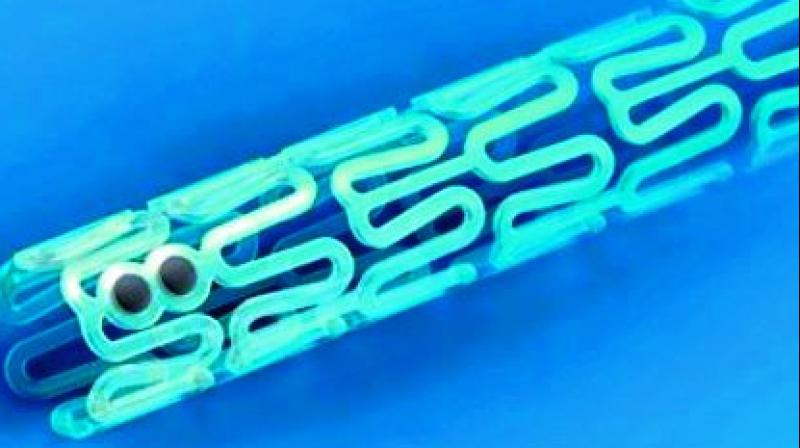Bio-absorbable stents put on restricted use
These are found to increase risk of stent thrombosis.

Hyderabad: The adverse impact of bio-absorbable stents means that it will not be available in the open market but has not been banned by the Drug Controller General of India (DCGI), which is asking the manufacturer to check for specific India-related adverse reactions and report to the Central Drugs Standard Control Organisation. According to a recent review carried out by cardiologists, it was found that bio-absorbable stents increased the risk of stent thrombosis whe-re it was found that there was severe blood clotting near the stent. In those cases, where these stents were used, there was a longer duration of the use of blood thinners than those implanted with drug-eluting stents.
After the review in European and US markets, the drug controller has decided to not supply the product in the open market and restrict it to only registered hospitals for clinical purposes. Dr G. N. Singh of the DGCI explained, “The product has been put to restricted use in the Euroepan market and we have asked the manufacturer to report adverse events suspected to be associated with the use of Absorb Bioresorable Vascular Scaffold and Absorb GTI Bioresorbable Vascular Scaffold to the CDSCO. Based on these India- specific findings, we will take a call.” Clinical data of three years is being evaluated to understand the adverse cardiac events.
According to a senior drug controller in Telangana, the manufacturer has already circulated a field-safety notice in European countries and they are looking to collecting real-world evidence of the systems. The company, in its advisory to cardiologists and drug controllers, has stated that ‘bioresorbable stents will not be provided to non-registered sites after March 31.’’ This means that these stents will be removed from the open market and cardiologists are not to opt for it until and unless it is for further clinical trials.
These stents were launched in September 2012 and it was claimed to be the best in the treatment for coronary heart diseases. The clinical trials were carried out on 100 patients in India before introducing them in the market. The withdrawal now means that they have to track and find out the real-evidence of the adverse effect as stated by cardiologists in their review. Senior cardiologists state that they are now looking at bioresorbable as a technology for the future. For the present, they are looking at drug eluting stents as the best form of treatment.

